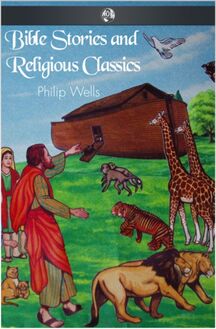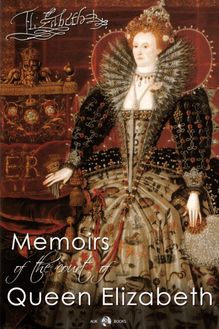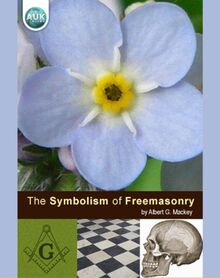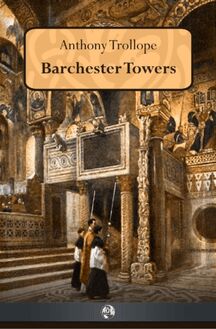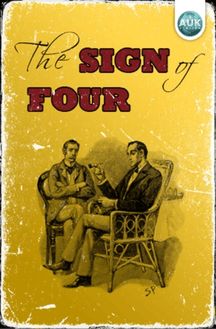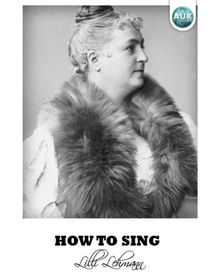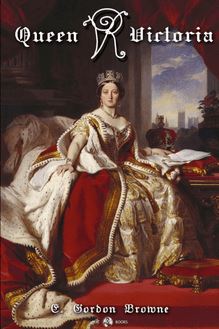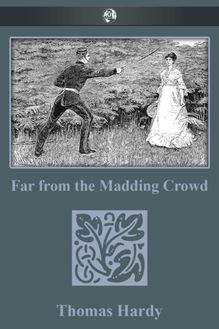-
 Univers
Univers
-
 Ebooks
Ebooks
-
 Livres audio
Livres audio
-
 Presse
Presse
-
 Podcasts
Podcasts
-
 BD
BD
-
 Documents
Documents
-
- Cours
- Révisions
- Ressources pédagogiques
- Sciences de l’éducation
- Manuels scolaires
- Langues
- Travaux de classe
- Annales de BEP
- Etudes supérieures
- Maternelle et primaire
- Fiches de lecture
- Orientation scolaire
- Méthodologie
- Corrigés de devoir
- Annales d’examens et concours
- Annales du bac
- Annales du brevet
- Rapports de stage
La lecture à portée de main
Vous pourrez modifier la taille du texte de cet ouvrage
Découvre YouScribe en t'inscrivant gratuitement
Je m'inscrisDécouvre YouScribe en t'inscrivant gratuitement
Je m'inscrisEn savoir plus
Vous pourrez modifier la taille du texte de cet ouvrage
En savoir plus

Description
Informations
| Publié par | Andrews UK |
| Date de parution | 09 juillet 2010 |
| Nombre de lectures | 0 |
| EAN13 | 9781849891660 |
| Langue | English |
Informations légales : prix de location à la page 0,0150€. Cette information est donnée uniquement à titre indicatif conformément à la législation en vigueur.
Extrait
Title Page
Barchester Towers
by
Anthony Trollope
Publisher Information
Digital Edition converted and published by
Andrews UK Limited 2010
www.andrewsuk.com
This Digital Edition, including all typography, formatting and layout is copyright 2010 Andrews UK. This book is sold subject to the condition that it shall not, by way of trade or otherwise, be lent, resold, hired out or otherwise circulated without the publisher’s prior written consent in any form of binding or cover other than that in which it is published, and without a similar condition being imposed on the subsequent purchaser.
CHAPTER I
WHO WILL BE THE NEW BISHOP?
In the latter days of July in the year 185-, a most important question was for ten days hourly asked in the cathedral city of Barchester, and answered every hour in various ways - Who was to be the new Bishop?
The death of old Dr Grantly, who had for many years filled the chair with meek authority, took place exactly as the ministry of Lord - was going to give place to that Lord -. The illness of the good old man was long and lingering, and it became at last a matter of intense interest to those concerned whether the new appointment should be made by a conservative or liberal government.
Bishop Grantly died as he had lived, peaceably, slowly, without pain and without excitement. The breath ebbed from him almost imperceptibly, and for a month before his death, it was a question whether he was alive or dead.
A trying time was this for the archdeacon, for whom was designed the reversion of his father’s see by those who then had the giving away of episcopal thrones. I would not be understood to say that the prime minister had in so many words promised the bishopric to Dr Grantly. He was too discreet a man for that. There is a proverb with reference to the killing of cats, and those who know anything either of high or low government places, will be well aware that a promise may be made without positive words, and that an expectant may be put into the highest state of encouragement, though the great man on whose breath he hangs may have done no more than whisper that ‘Mr So-and-so is certainly a rising man.’
Such a whisper had been made, and was known by those who heard it to signify that the cures of the diocese of Barchester should not be taken out of the hands of the archdeacon. The then prime minister was all in all at Oxford, and had lately passed a night at the house of the master of Lazarus. Now the master of Lazarus - which is, by the bye, in many respects the most comfortable, as well as the richest college at Oxford, - was the archdeacon’s most intimate friend and most trusted counsellor. On the occasion of the prime minister’s visit, Dr Grantly was of course present, and the meeting was very gracious. On the following morning Dr Gwynne, the master, told the archdeacon that in his opinion the matter was settled.
At this time the bishop was quite on his last legs; but the ministry was also tottering. Dr Grantly returned from Oxford happy and elated, to resume his place in the palace, and to continue to perform for the father the last duties of a son; which, to give him his due, he performed with more tender care than was to be expected from his usual somewhat worldly manners.
A month since the physicians had named four weeks as the outside period during which breath could be supported within the body of the dying man. At the end of the month the physicians wondered, and named another fortnight. The old man lived on wine alone, but at the end of the fortnight he still lived; and the tidings of the fall of the ministry became more frequent. Sir Lamda Mewnew and Sir Omicron Pie, the two great London doctors, now came down for the fifth time, and declared, shaking their learned heads, that another week of life was impossible; and as they sat down to lunch in the episcopal dining-room, whispered to the archdeacon their own private knowledge that the ministry must fall within five days. The son returned to his father’s room, and after administering with his own hands the sustaining modicum of madeira, sat down by the bedside to calculate his chances.
The ministry were to be out within five days: his father was to be dead within - No, he rejected that view of the subject. The ministry were to be out, and the diocese might probably be vacant at the same period. There was much doubt as to the names of the men who were to succeed to power, and a week must elapse before a Cabinet was formed. Would not vacancies be filled by the out-going men during that week? Dr Grantly had a kind of idea that such would be the case, but did not know; and then he wondered at his own ignorance of such a question.
He tried to keep his mind away from the subject, but he could not. The race was so very close, and the stakes were so very high. He then looked at the dying man’s impassive, placid face. There was no sign there of death or disease; it was something thinner than of yore, somewhat grayer, and the deep lines of age more marked; but, as far as he could judge, life might yet hang there for weeks to come. Sir Lamda Mewnew and Sir Omicron Pie had thrice been wrong, and might yet be wrong thrice again. The old bishop slept during twenty of the twenty-four hours, but during the short periods of his waking moments, he knew both his son and his dear friend Mr Harding, the archdeacon’s father-in-law, and would thank them tenderly for their care and love. Now he lay sleeping like a baby, resting easily on his back, his mouth just open, and his few gray hairs straggling from beneath his cap; his breath was perfectly noiseless, and his thin, wan hand, which lay above the coverlid, never moved. Nothing could be easier than the old man’s passage from this world to the next.
But by no means easy were the emotions of him who sat there watching. He knew it must be now or never. He was already over fifty, and there was little chance that his friends who were now leaving office would soon return to it. No probable British prime minister but he who was now in, he who was so soon to be out, would think of making a bishop of Dr Grantly. Thus he thought long and sadly, in deep silence, and then gazed at that still living face, and then at last dared to ask himself whether he really longed for his father’s death.
The effort was a salutary one, and the question was answered in a moment. The proud, wishful, worldly man, sank on his knees by the bedside, and taking the bishop’s hand within his own, prayed eagerly that his sins might be forgiven him.
His face was still buried in the clothes when the door of the bed-room opened noiselessly, and Mr Harding entered with a velvet step. Mr Harding’s attendance at that bedside had been nearly as constant as that of the archdeacon, and his ingress and egress was as much a matter of course as that of his son-in-law. He was standing close beside the archdeacon before he was perceived, and would have also knelt in prayer had he not feared that his doing so might have caused some sudden start, and have disturbed the dying man. Dr Grantly, however, instantly perceived him, and rose from his knees. As he did so Mr Harding took both his hands, and pressed them warmly. There was more fellowship between them at that moment than there had ever been before, and it so happened that after circumstances greatly preserved the feeling. As they stood there pressing each other’s hands, the tears rolled freely down their cheeks.
‘God bless you, my dears,’ - said the bishop with feeble voice as he woke - ‘God bless you - may God bless you both, my dear children:’ and so he died.
There was no loud rattle in the throat, no dreadful struggle, no palpable sign of death; but the lower jaw fell a little from its place, and the eyes, which had been so constantly closed in sleep, now remained fixed and open. Neither Mr Harding nor Dr Grantly knew that life was gone, though both suspected it.
‘I believe it’s all over,’ said Mr Harding, still pressing the other’s hands. ‘I think - nay, I hope it is.’
‘I will ring the bell,’ said the other, speaking all but in a whisper. ‘Mrs Phillips should be here.’
Mrs Phillips, the nurse, was soon in the room, and immediately, with practised hand, closed those staring eyes.
‘It’s all over, Mrs Phillips?’ asked Mr Harding.
‘My lord’s no more,’ said Mrs Phillips, turning round and curtseying with a solemn face; ‘His lordship’s gone more like a sleeping baby than any that I ever saw.’
‘It’s a great relief, archdeacon,’ said Mr Harding, ‘A great relief - dear good, excellent old man. Oh that our last moments may be as innocent and peaceful as his!’
‘Surely,’ said Mrs Phillips. ‘The Lord be praised for all his mercies; but, for a meek, mild, gentle-spoken Christian, his lordship was - ‘ and Mrs Phillips, with unaffected but easy grief, put up her white apron to her flowing eyes.
‘You cannot but rejoice that it is over,’ said Mr Harding, still counselling his friend. The archdeacon’s mind, however, had already travelled from the death chamber to the closet of the prime minister. He had brought himself to pray for his father’s life, but now that that life was done, to dally with the fact of the bishop’s death - useless to lose perhaps everything for the pretence of a foolish sentiment.
But how was he to act while his father-in-law stood there holding his hand? How, without appearing unfeeling, was he to forget his father in the bishop - to overlook what he had lost, and think only of what he might possibly gain?
‘No; I suppose not,’ said he, at last, in answer to Mr Harding. ‘We have all expected it for so long.’
Mr Harding took him by the arm and led him from the room. ‘We will see him again to-morrow morning,’ said he; ‘We had better leave the ro
-
 Univers
Univers
-
 Ebooks
Ebooks
-
 Livres audio
Livres audio
-
 Presse
Presse
-
 Podcasts
Podcasts
-
 BD
BD
-
 Documents
Documents
-
Jeunesse
-
Littérature
-
Ressources professionnelles
-
Santé et bien-être
-
Savoirs
-
Education
-
Loisirs et hobbies
-
Art, musique et cinéma
-
Actualité et débat de société
-
Jeunesse
-
Littérature
-
Ressources professionnelles
-
Santé et bien-être
-
Savoirs
-
Education
-
Loisirs et hobbies
-
Art, musique et cinéma
-
Actualité et débat de société
-
Actualités
-
Lifestyle
-
Presse jeunesse
-
Presse professionnelle
-
Pratique
-
Presse sportive
-
Presse internationale
-
Culture & Médias
-
Action et Aventures
-
Science-fiction et Fantasy
-
Société
-
Jeunesse
-
Littérature
-
Ressources professionnelles
-
Santé et bien-être
-
Savoirs
-
Education
-
Loisirs et hobbies
-
Art, musique et cinéma
-
Actualité et débat de société
- Cours
- Révisions
- Ressources pédagogiques
- Sciences de l’éducation
- Manuels scolaires
- Langues
- Travaux de classe
- Annales de BEP
- Etudes supérieures
- Maternelle et primaire
- Fiches de lecture
- Orientation scolaire
- Méthodologie
- Corrigés de devoir
- Annales d’examens et concours
- Annales du bac
- Annales du brevet
- Rapports de stage
